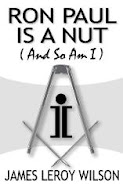America needs a third major political party. Not a stronger "protest" party, but one equally as popular and powerful as the two we have. Not because the Democratic and Republican Parties have failed - although they certainly have. Not to supplant one of those parties, although both of them deserve to die. Not because we need new and better ideas than what the Two Parties have allowed, although we do.
Four parties would be even better, five even, but we have to start somewhere.
The reason for a third major party begins with the Electoral College. Imagine three major-party nominees for President, none getting 40% of the vote. None getting a majority in the Electoral College. Elections thrown to the House of Representatives. Maybe the first-place guy in popular votes is second in Electoral votes. Maybe the #1 in both popular and Electoral votes is absolutely hated by 60% of the American people and 75% of Congress. Maybe the third-place guy throws his support to the second-place guy in exchange for getting appointed Secretary of State. (It's happened before...)
The result? The President, not being popularly elected, gets no "mandate" to get his legislative agenda implemented. He must govern along with the leaders of at least two of the three parties in Congress, or he'll lose one of them and see most of Congress against him. The age of the Imperial Presidency would draw to a close. Facing one hostile party, and one party that could turn hostile, Presidents would be at greater risk of impeachment than today, because impeachment wouldn't be seen as "overturning an election." After two or three Presidencies like this, the people may come to view the President as a manager, a ho-hum position lacking the power and prestige it holds today.
If congress was similarly divided - say, no party with fewer than 20% of the seats or more than 40% - then caucuses would become far more interesting. For a coalition of parties to become a majority, key committee posts would have to be given to the smaller party in the coalition. A third party would be a "check and balance" on the other two. A bill with "bi-partisan" support might still be blocked by the third. It is more likely that laws with expiration dates would not be renewed, and instead of agreeing to a new budget, Congress could only pass "continuing resolutions" at previous budget levels. Government would not grow.
Moreover, many members of Congress would themselves have normally gotten elected with a plurality, not a majority - or, perhaps, a run-off vote. They couldn't retain their seats by exploiting a couple of emotional issues and demonizing his opponent, because he would have to contend with two opponents - one of whom may agree with him on those issues but present himself as better on other issues. There wouldn't be as many "safe seats" and free rides in Congress.
Of course, I have my preferences of what the agenda of this third party would be. But that matters little, because as it gathers more prominence ideology would take a backseat to winning elections. And it's also true that a Reichstag Fire event, like 9-11, could frighten the people and all parties into "supporting the Commander-in-Chief," but his window of goodwill would close more quickly in a three-party system than it has with George W. Bush.
The more un-democratic the government is, the less likely the people are to support or trust it, which means it is less likely to try to do too much. Passing a constitutional amendment to disenfranchise the people is an absurd idea. By turning majorities into pluralities and coalitions, the very presence of a third-party would make the federal government less effective, which would be good for liberty.
James Leroy Wilson's one-man magazine.
Tuesday, March 18, 2008
Subscribe to:
Post Comments (Atom)




No comments:
Post a Comment